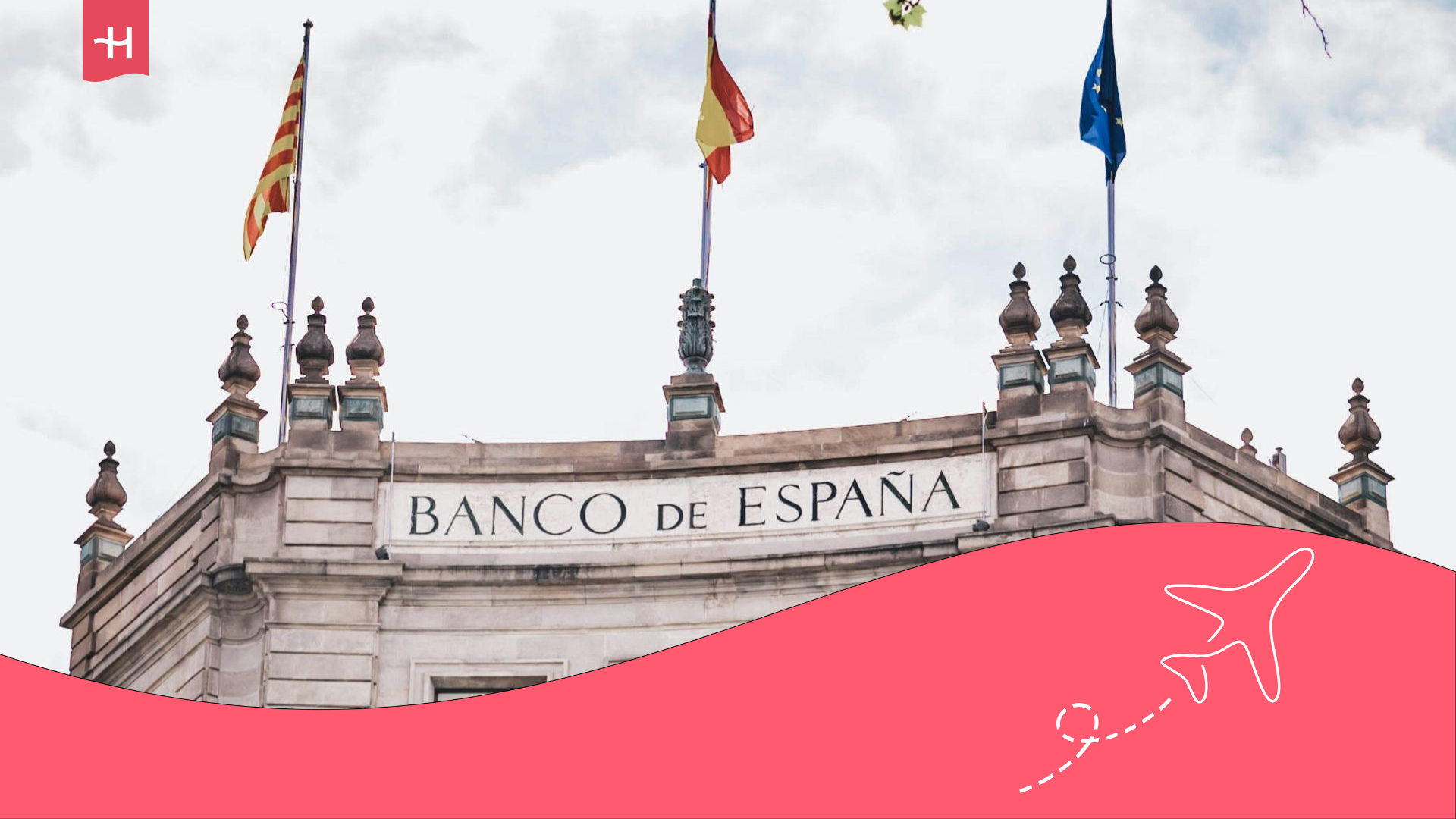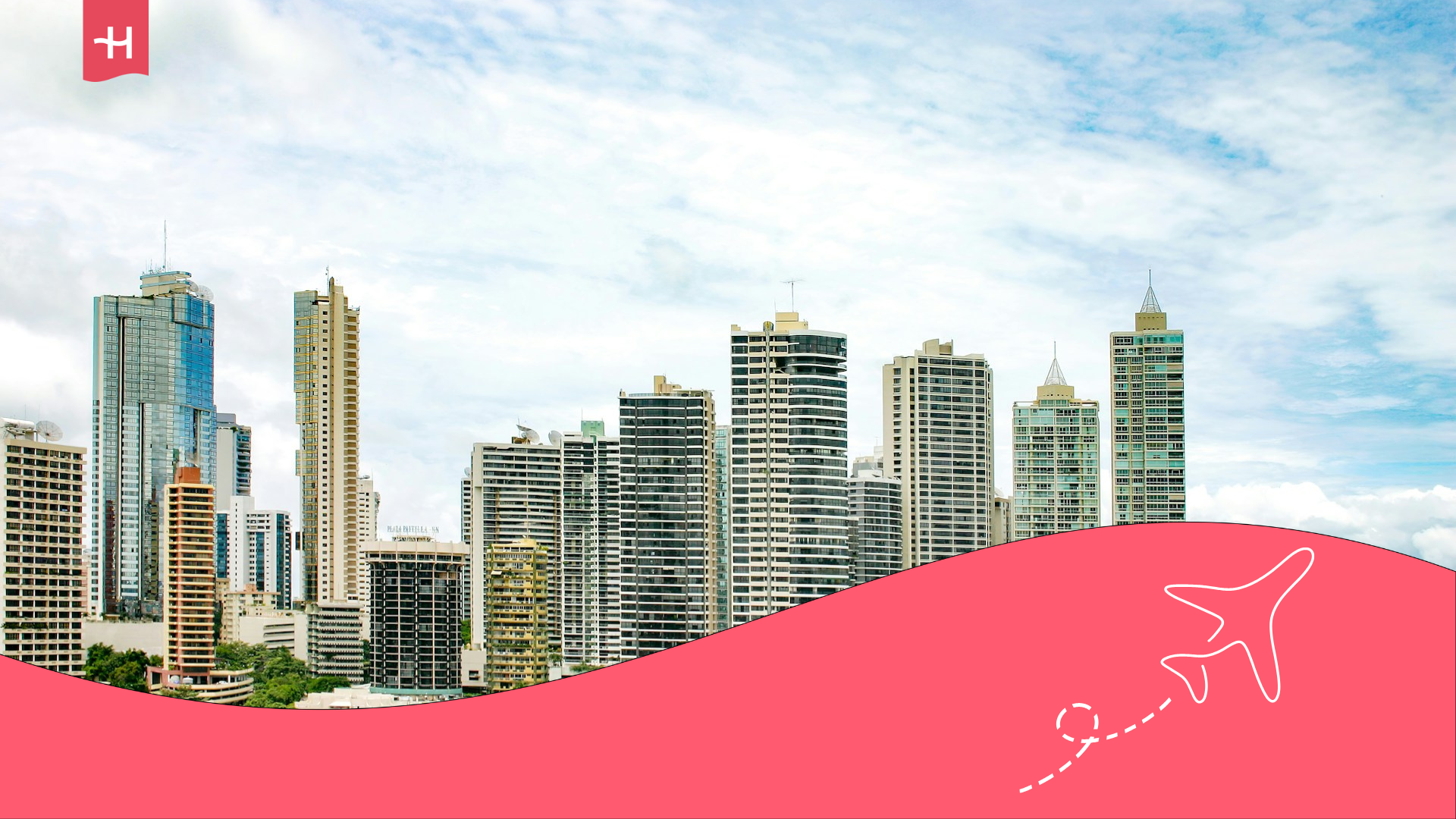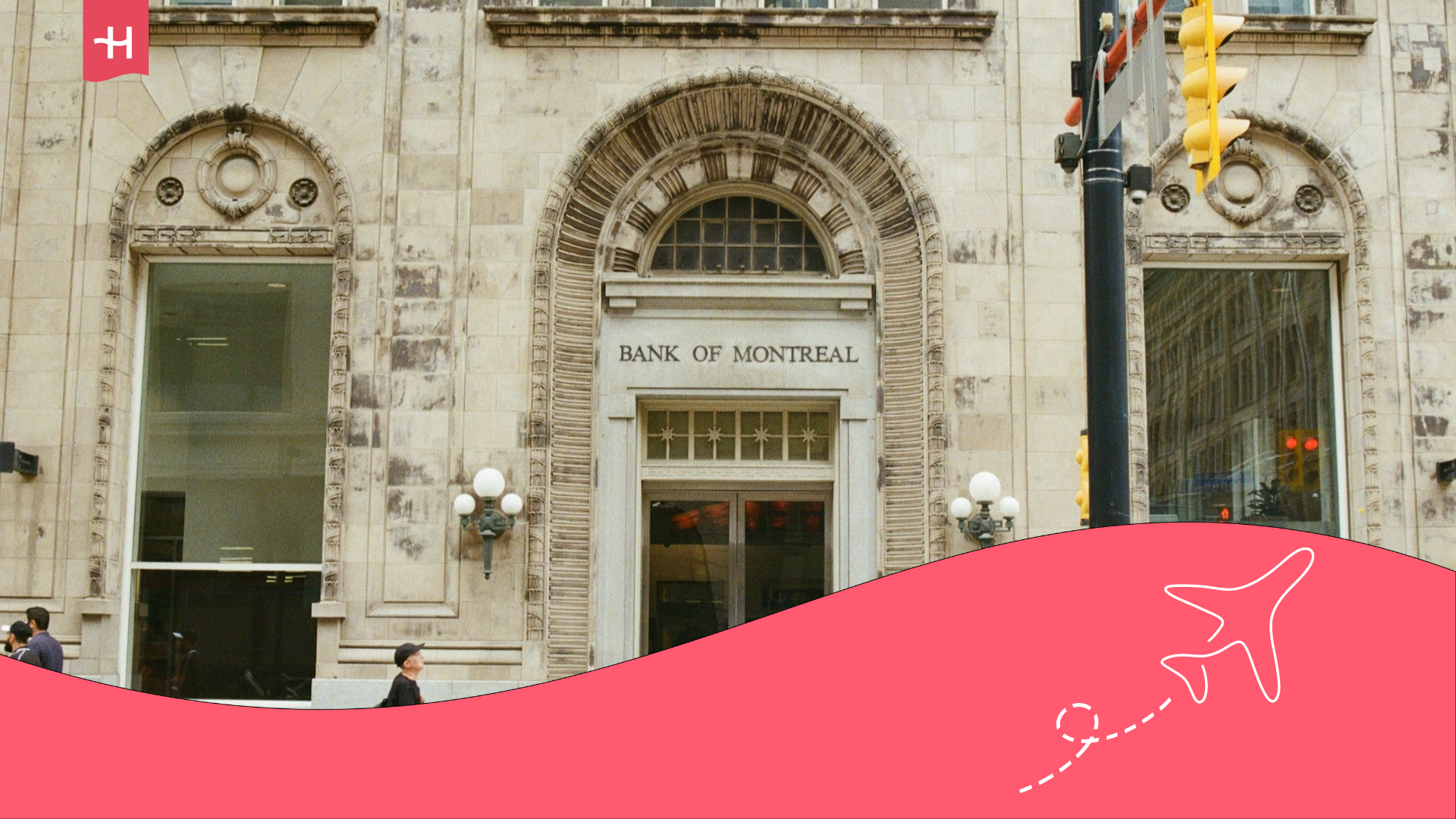Cost of living in Belgium: Food, transport, and more
Find out how high the cost of living is in Belgium and plan your trip to one of the most beautiful countries in Europe.
Living in Belgium means diving into a unique mix of medieval history, modernity and European quality of life. From Bruges’ canals to multicultural Brussels, the country attracts both expats, students and digital nomads. But before packing, you should know that the cost of living in Belgium varies a lot depending on the city, lifestyle and accommodation type you choose.
This guide gives you information about the most important expenses: housing, food, transport, healthcare, leisure and connectivity. After reading, you’ll plan your monthly budget clearly and understand how much you really need to live comfortably in Belgium.


 +1M
+1M
With Holafly, you save +30% compared to roaming fees
Plans that may interest you
Accommodation in Belgium: What to expect and how much it costs
Housing is one of the most significant expenses when calculating the cost of living in Belgium. As you can imagine, location makes the difference: living in Brussels’ historic centre or near Antwerp’s main squares may double the price compared to outer districts or smaller cities like Ghent or Leuven. It also depends if you choose long-term rental, short-term Airbnb or coliving spaces for young professionals and students.
Below, we explain the most common housing options in Belgium for travellers, digital nomads and students, so you can compare and choose the one that fits your budget and lifestyle best.
1- Furnished apartments in Belgium
If you want to settle immediately without worrying about buying furniture or appliances, furnished flats are practical, though costlier than empty rentals.
In Brussels, a one-bedroom fully equipped flat in a central area costs around €1,000–1,300 ($1,090–1,420) monthly. In outer districts or smaller cities, the price drops to €750–950 ($820–1,040).
These rentals usually include full furniture, equipped kitchen and, often, internet connection. This makes moving easier and lowers initial expenses. However, always read the contract carefully, since some landlords add extra fees for cleaning or maintenance.
Belgium has a competitive housing market, especially in major cities, so start your search early. Consider portals like Immoweb or Spotahome, which let you filter for furnished properties only.
2- Airbnb in Belgium
If you’re planning to live in Belgium for a few weeks or a couple of months, Airbnb is flexible, especially since you avoid long-term contracts. In cities like Brussels or Antwerp, a private flat or studio in central areas usually costs between €1,500–2,200 ($1,635–2,400) monthly, depending on location, season and included amenities.
In smaller cities like Ghent or Leuven, prices range from €1,100–1,500 ($1,200–1,635) monthly. The big advantage is that the fee includes utilities such as electricity, heating, water, internet and often regular cleaning.
Another benefit is that, unlike traditional furnished apartments, Airbnb doesn’t require high deposits or long contracts. On the downside, it can become more expensive if your stay exceeds three months. Therefore, it’s ideal for newly arrived expats, digital nomads or international students searching for temporary accommodation while finding something permanent.
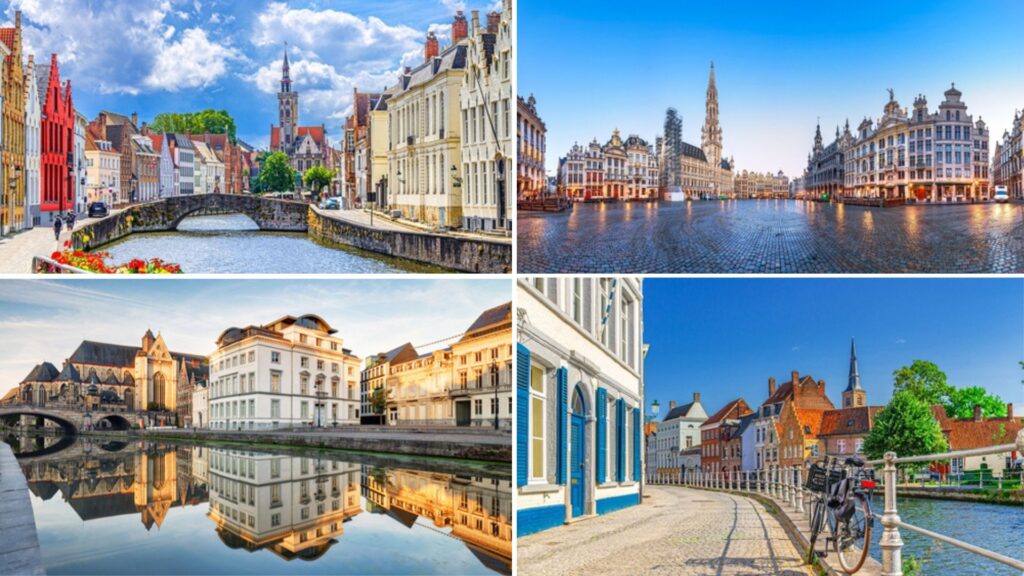
3- Cost of living in Belgium: Coliving prices
Coliving has gained popularity in Belgium, especially among young professionals, digital nomads and international students seeking to combine housing with community. In cities like Brussels, Antwerp and Ghent, you’ll find coliving spaces offering furnished private rooms and common areas like equipped kitchens, coworking rooms, terraces and leisure areas.
The monthly price in a Brussels coliving usually ranges from €750–1,200 ($820–1,310), with utilities included: electricity, heating, water, high-speed internet and often community activities. In university towns like Leuven or Ghent, prices may be lower, starting at €650 ($710) monthly.
Unlike Airbnb or a furnished flat, coliving encourages social interaction and networking, making it ideal for newcomers wanting to integrate quickly. Moreover, contracts are usually flexible, adapting to stays from a few weeks to several months.
4- Student residences in Belgium
Belgium is a top destination for international students, especially in cities like Brussels, Ghent, Antwerp and Leuven, home to prestigious universities. Student residences offer a practical and safe solution for those wanting to live close to their campus with all services included.
The price in a student residence depends on city and room type. In Brussels, a single room with shared bathroom costs €400–650 ($435–710) monthly, while a private bathroom room ranges €650–900 ($710–980). In smaller cities like Mons or Namur, prices start at €350 ($380).
Fees include basics such as electricity, heating, water and internet, with some residences also offering cleaning, laundry and common areas like gyms or study rooms. Most universities have their own residences or partner with external providers, making the search process easier for students.
Food prices: How expensive is eating in Belgium?
Belgian cuisine is a real delight, but it may impact your budget if you don’t balance groceries and eating out. In supermarkets, you’ll find fresh local products like cheese and chocolate, alongside imported options that usually cost more. Choosing own-brand products from well-known chains can help cut monthly expenses without losing quality.
A reasonable budget for one person cooking at home is between €200–350 ($220–380) monthly, depending on the amount of fresh and special items included. Here’s a table with average food prices in big chains like Carrefour, Delhaize and Colruyt.
| Product | Price in € | Price in USD |
|---|---|---|
| White bread (500 g): | €2,20 | $2.40 |
| Milk (1 litre) | €1.35 | $1.45 |
| Eggs (dozen) | €3.10 | $3.35 |
| Local cheese (1 kg): | €14,00 | $15.25 |
| Chicken breast (1 kg) | €10,50 | $11.45 |
| Beef (1 kg) | €17,00 | $18.50 |
| White rice (1 kg) | €2,40 | $2.60 |
| Dry pasta (500 g) | €1,60 | $1.75 |
| Apples (1 kg) | €3,00 | $3.25 |
| Tomatoes (1 kg) | €3,50 | $3.80 |
| Potatoes (1 kg) | €2,20 | $2.40 |
| Water bottle (1.5 litres) | €0,90 | $0.98 |
| Local beer (0.5 litres) | €2,00 | $2.20 |
Cost of living in Belgium: Average food prices
Eating out is another world: a simple lunch in a casual restaurant costs €15–20 ($16–22), while dinner for two in a mid-range place costs €60–80 ($65–87). As for Belgian beers, popular ones are around €3 ($3.30) per glass, though limited or abbey editions can exceed €6 ($6.50).

Transport and cost of living in Belgium
Moving around Belgium is comfortable, fast and, if you use the right options, quite efficient for value. The country has a well-developed railway network connecting not only major cities like Brussels, Antwerp, Ghent and Bruges but also smaller towns. Trains are usually punctual. Although ticket prices aren’t the lowest in Europe, comfort makes up for it.
A single train ticket between Brussels and Ghent costs around €10 ($10.90). If you travel often, it’s better to buy a Rail Pass or a Go Pass (for under-26s), which give unlimited journeys or significant discounts.
In cities, public transport includes trams, buses and metro (the latter only in Brussels). A single ticket costs about €2.50 ($2.75), and unlimited monthly passes range €55–60 ($60–65).
For bike lovers, Belgium is very cyclist-friendly. Cities like Ghent and Leuven have well-marked bike lanes and public rental systems for less than €5 ($5.50) per day.
As for taxis and apps like Uber, the starting fare is about €3.50 ($3.80), with per-kilometre rates close to €2 ($2.20). It’s not the cheapest option, but it’s convenient at night or outside public transport routes.
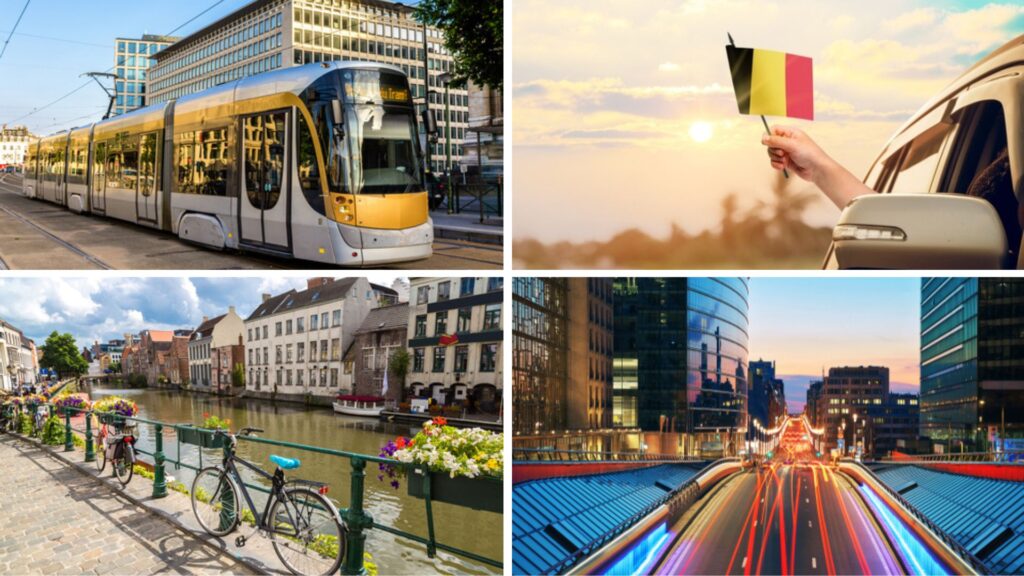
Healthcare costs in Belgium
Belgium’s healthcare system is known for its high quality and wide coverage for both residents and foreigners with valid insurance. Although it isn’t free, costs are usually reasonable compared to other Western European countries.
If you’re a resident or worker, you must join a mutuality (mutuelle or ziekenfonds), which covers most medical and hospital expenses. For example, a basic medical consultation costs €25–30 ($27–33), but the mutuality refund may reach 75%.
For short stays, the best option is an international travel insurance covering medical emergencies. An emergency visit without insurance easily exceeds €150 ($163), and one-night hospitalisation ranges €300–500 ($325–545), depending on the facility.
Medicine costs are affordable in most cases, especially generics, available from €5 ($5.50). Pharmacies in Belgium usually have extended hours and night shifts, making it easy to access treatments when needed.
In general, investing in reliable insurance (local or international) is essential to keep your budget under control and avoid unexpected expenses that could affect your stay in the country.
Connectivity and cost of living in Belgium
Belgium has excellent telecommunications infrastructure, which means staying connected is easy for both residents and visitors. The country offers wide 4G and 5G coverage in urban areas, along with fibre optic connections in most homes.
If you want a local mobile plan, the most popular companies (Proximus, Orange and Base) offer packages from €15–20 ($16–22) per month with mobile data and calls included. More complete plans, with unlimited data, exceed €40 ($43).
A fibre optic home internet service with 100 Mbps speed costs on average €45–55 ($49–60) monthly, often including cable TV or streaming services. In rural areas, speeds may be lower and prices slightly higher.
In cities like Brussels, Antwerp and Ghent, you’ll also find a network of free public Wi-Fi in squares, libraries and train stations. However, for safe and constant use, a private connection is recommended.
The best option for travellers
If your stay in Belgium lasts only a couple of weeks, the Holafly eSIM is a perfect choice, since it gives you unlimited data from the moment you land, without searching for a local SIM. The eSIM installs in minutes and you can buy it for the exact number of days your Belgian adventure lasts.
If you’re staying several months to live and work in Belgium, or it’s part of a longer European trip, a Holafly monthly plan is exactly what you need. You’ll also have unlimited data and one eSIM that works in over 160 countries, so forget about buying physical SIMs each time you land somewhere new. Best of all, if you subscribe yearly, you get a juicy monthly discount: €50.50 ($55) instead of €64.90 ($70.50), a real advantage.
Important: If you are a frequent traveler and want to stay connected without worrying about expensive roaming or looking for a new SIM at every destination, Holafly’s subscription plans are for you. With a single eSIM, enjoy internet in more than 160 countries for a fixed price and no surprises on your bill. Travel without limits and connect easily and securely! 🚀🌍

Cost of living in Belgium: Leisure, culture and outdoor entertainment

Living in Belgium means enjoying a cultural and entertainment offer that’s hard to match for a country this size. Cities are full of museums, festivals, concerts and outdoor events throughout the year.
Many attractions are free: walking through Brussels’ Grand Place, visiting the Laeken Park, strolling Bruges’ canals or exploring the Sonian Forest won’t cost anything. Additionally, some museums offer free entry once a month, like the Magritte Museum in Brussels or MAS in Antwerp.
For paid activities, there are options for every taste and budget:
- Royal Museums of Fine Arts of Belgium (Brussels): €10–12 ($11–13).
- Atomium in Brussels: €16 ($17).
- Boat tour of Ghent or Bruges canals: €10–15 ($11–16).
- Castle of the Counts of Ghent: €13 ($14).
- Visit to Han-sur-Lesse Caves: €25 ($27).
- Bike excursion in the Ardennes: daily rental from €20 ($21.50).
- Chocolate tasting in Brussels artisan workshops: from €15 ($16).
- Music festival tickets like Tomorrowland: from €120 ($130) per day.
- Belgian football league match: €20–45 ($21.5–48).
Belgium combines vibrant urban life with natural escapes like the Ardennes or the Flemish Coast, perfect for outdoor activities. Leisure here adapts to every budget.
How high is the cost of living in Belgium?
The cost of living in Belgium varies a lot depending on the city, lifestyle and personal choices. Brussels, Antwerp and Ghent are usually more expensive than smaller towns, but you’ll find ways to balance costs nationwide, from budget supermarkets to free cultural activities.
With good planning, you can enjoy excellent quality of life without overspending. Take advantage of free experiences and invest in the ones that matter most. Belgium, with its blend of history, modernity and cultural diversity, offers a strong balance between life quality and opportunities, whether you stay short-term or plan to settle long-term.
Frequently asked questions about the cost of living in Belgium
The monthly budget for one person in Belgium ranges from €1,400–2,000 ($1,525–2,175), depending on city and lifestyle. In Brussels or Antwerp, rent is the highest cost, while smaller towns are considerably cheaper.
The official currency is the euro (€). Banknotes and coins are the same as in the rest of the Eurozone, making payments easy for residents and travellers from other European countries.
Belgium accepts cash, debit and credit cards, and digital methods like Payconiq and contactless. Even small shops usually take cards, though in street markets cash is still common.
One of the most iconic attractions is Brussels’ Grand Place, a UNESCO World Heritage Site. The square itself is free, but some nearby museums, like the Brussels City Museum, charge about €10 ($11).
Yes. Belgium has several free natural areas, like Hoge Kempen National Park, where you can hike and cycle without paying entry. Some places offer guided activities or interpretation centres for an extra cost, but basic access is free.
Generally, Liège and Charleroi are the most affordable cities to live in Belgium. Rent prices are much lower than in Brussels, Antwerp or Ghent, and daily living costs are also cheaper. This makes them attractive options for students, digital nomads or anyone wanting to save money without losing access to good services and transport.





 Language
Language 


















 No results found
No results found







